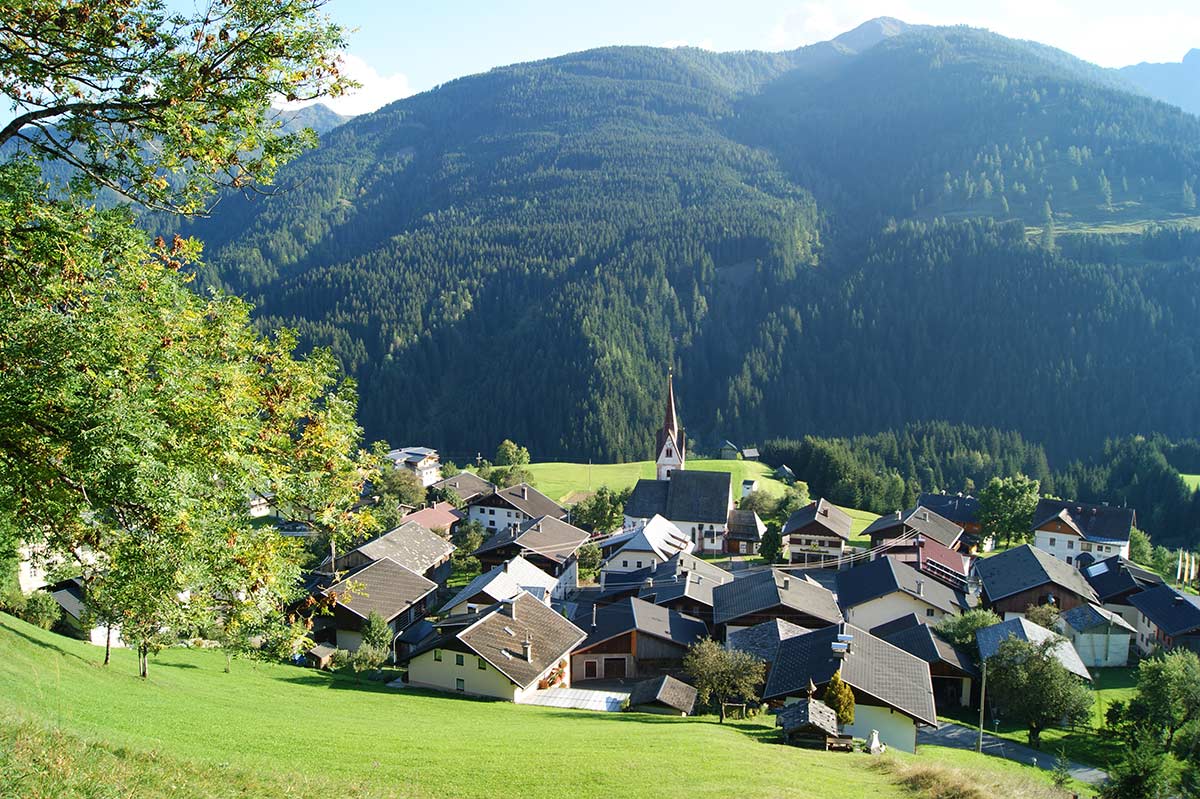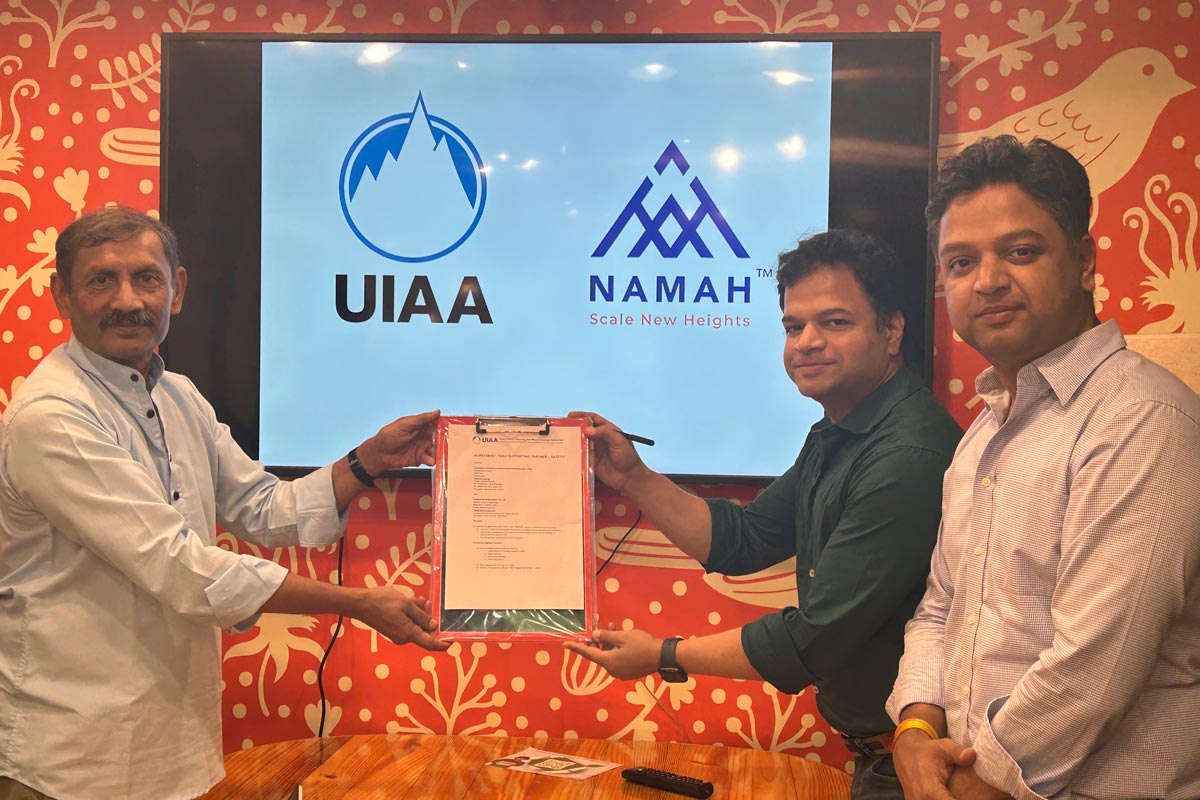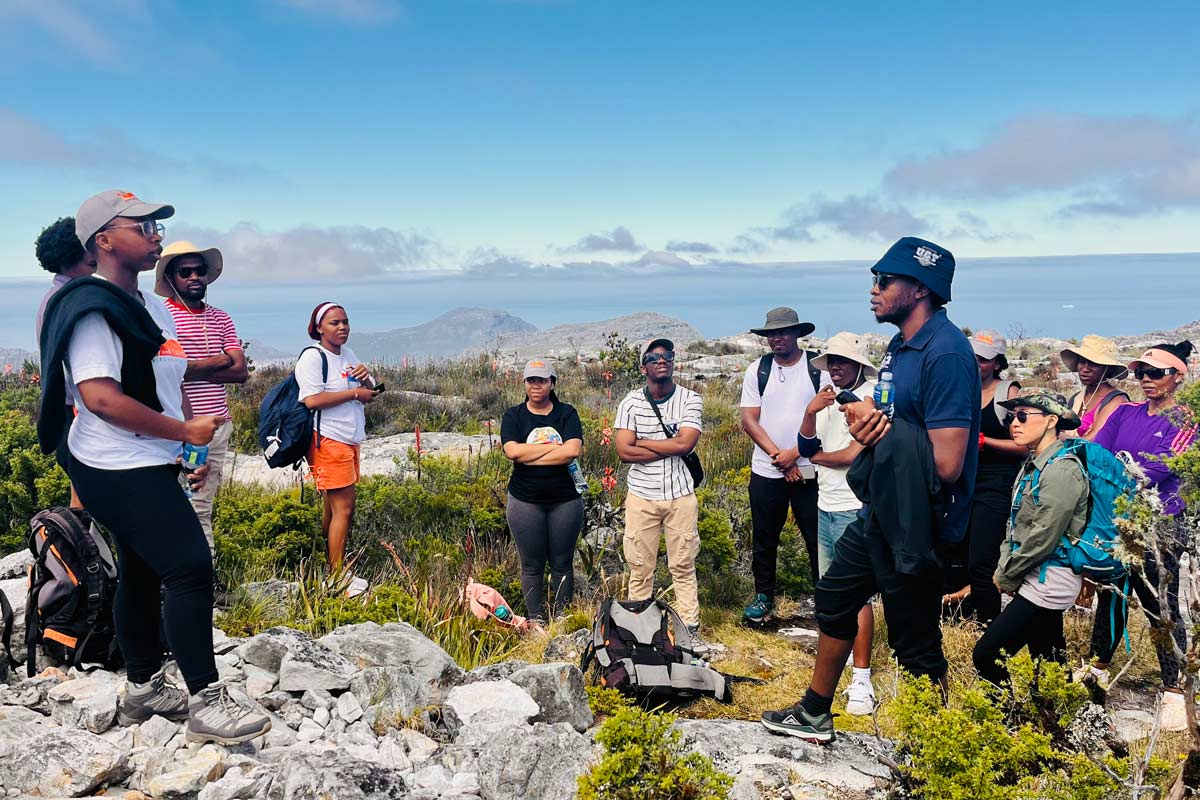OVERVIEW
The network and international initiative of the “Bergsteigerdörfer” (Mountaineering Villages) , supported by a number of UIAA member associations, acts as a counter movement to the trend of expanding technical developments and mass tourism and offers a clear vision for the future of tourism in the Alps: in the future low-impact, low-emission and highly nature-based forms of tourism will become a significant part of the tourism sector in the Alps. Mountaineering Villages have committed to develop sustainable and nature-based tourism strategies that reduce negative effects on the Alpine environment as far as possible.
—
Vision, goals and objectives
The Alps have been a focal point and an area of conflict between the tourism sector and the efforts of environmental conservation over the last decades. In recent years, this conflict has reached a high point: ski resorts and technical development still keep expanding into untouched Alpine nature, negative effects of mass tourism are prevalent in many places, cultures and tradition are starting to get lost.
A network with a vision: nature-based tourism as a strategy for the future of the Alps. The network and international initiative of the “Bergsteigerdörfer” (further referred to as Mountaineering Villages) act as a counter movement to this trend and have a clear vision for the future of tourism in the Alps: in the future low-impact, low-emission and highly nature-based forms of tourism will become a significant part of the tourism sector in the Alps. This development has significantly contributed to the preservation of nature and landscapes as well as cultural identities and traditions. With mountain sports and mountaineering as the core element, the Mountaineering Villages have committed to develop sustainable and nature-based tourism strategies that reduce negative effects on the Alpine environment as far as possible.
To achieve the vision of a harmony between tourism and nature conservation, the Mountaineering Villages have set the following main objectives:
- Nature and landscape conservation:
Unspoiled natural resources are the core element of nature-based tourism. The protection and preservation of these resources is the foundation of a sustainable economy of the future and preserves small ecosystems that come with traditional Alpine farming. - Renouncement of technical developments, such as extensions of ski resorts or technical installations for summer tourism (viewpoints, Alpine coasters)
- Preservation and enhancement of cultural landscapes, Alpine farming and biodiversity
- Preservation of cultural identities and traditions of Alpine villages and regions:
Characteristic and unique Alpine traditions and cultural particularities of certain regions or villages are the foundation of a successful community and tourism strategy of the future. Besides the conservation of nature and landscape, the preservation of these unique cultural identities is one of the priorities of Mountaineering Villages.
Mountaineering Villages are therefore model regional development centres that highlight sustainable Alpine tourism with all its relevant traditions. They guarantee an attractive range of tourism activities for mountain sports enthusiasts; they can boast excellent quality in terms of landscape and environment, and they are committed to the preservation of local cultural and nature conservation values. As Alpine centres of excellence, Mountaineering Villages put the emphasis on communal responsibility, capability and independence, as well as on the environmentally aware and responsible conduct of guests when staying in the mountains. The model role of the Mountaineering Villages also means that they must seek to meet the aim of sustainable development in the Alpine region, fully in harmony and compliance with all applicable legal regulations and programmes, and according to the Alpine Convention.
Expected implementation and outcomes
In order to achieve the goals of strengthening sustainable and nature-based tourism and improving nature protection in the Alps, the partnering Alpine Associations are assembling a strong network of communities across the Alps, which implement the philosophy and goals of the project within their policies and tourism strategies. These communities act as pilot regions by implementing projects in different fields aiming for sustainable development.
Strengthening the Alpine-wide network of model regions for sustainable tourism
The project is uniting villages and communities from different countries, regions and cultural backgrounds within one extensive network. Currently this network of model regions consists of 35 communities and regions in Germany, Austria, Slovenia, Italy and Switzerland, from Bavaria to the Ligurian Alps close to the Mediterranean.
Despite the differences and varying circumstances of these communities, they are united by the common philosophy, vision and objectives of the project.
Potential Mountaineering Villages are chosen and evaluated by an extensive list of criteria. These criteria guarantee and solidify the community’s long-term commitment to the vision: develop sustainable and nature-based mountain tourism and strengthen nature conservation at the same time. The requirements and criteria can be found in the supporting document.
Realisation of hands-on projects
As a member of the international network of Mountaineering Villages communities take responsibility to align their communal policy, tourism strategy and economic development to the vision and objectives of the project.
Hands-on projects further improve the acceptance and functionality of nature-based tourism in the region. Among others, these projects aim at
- Improving the services and facilities for mountain sports
- Raising awareness for sustainable and environmentally friendly forms of tourism
- Preservation of local cultures and traditions
- Improving possibilities for climate friendly mobility, or
- Improving the quality of life and attractiveness of the community for residents.
Implementation of the Protocols of the Alpine Convention
The Mountaineering Villages are fully committed to implementing the protocols of the Alpine Convention by initiating and implementing local and regional projects. The commitment is ratified by a Memorandum of Understanding between the initiative and the Alpine Convention. The Alpine Convention is an international treaty concluded between the eight Alpine countries and the European Union. Its signatories believe wholeheartedly in the sustainable development and protection of the Alps.
Climbing, mountaineering or outdoor sport focus
Mountaineering and outdoor sports “by fair means” form the foundation and the core of the project. Mountaineering Villages use mountaineering and outdoor sports as a mean to educate about the need for environmental protection and to raise awareness about the sensitivity of mountain environments and the importance of sustainable tourism. Furthermore, for these communities, mountain sports are already and will even more in the future form the foundation of a sustainable economy that successfully reduces negative environmental impacts.
As a fundamental requirement to be part of the international network, all Mountaineering Villages need to be located within attractive mountain ranges that provide the possibility for a wide range of mountaineering disciplines. Mountaineering Villages thus promote all disciplines that do not require large technical infrastructure and services, such as ski resorts or cable cars. For local tourism providers this means showing restraint in the technical exploitation and development of the mountain region.
Mountaineering Villages have set a priority to provide all services and information that facilitate the planning of mountaineering outings in general. Furthermore, mountaineers are able to find all safety relevant information needed for safe trips in the mountains.
Mountaineering Villages therefore
- Maintain an extensive network of hiking trails according to the standards of the Alpine Associations
- Retain mountain huts and refuges for the long term in their role as high-altitude accommodation facilities, while serving as a base and as a functional extension of the accommodation in the valley.
- Offer and keep improving essential services to promote and facilitate mountaineering and outdoor sports. These include among others the availability of professional mountain guides, the possibility of gear rental, providing information about itineraries and routes through guidebooks and providing professional information about the current conditions in the mountains (e.g. weather, avalanche risk, conditions of trails).
- Raise awareness about the sensitivity of Alpine ecosystems and educate visitors and mountaineers on standard rules on how to (and how not to) act while being outdoors.
Best practice in mountaineering and mountain-based sports for mountain protection
Mountaineering Villages are mountain sport pioneers in their own regions. Their history was shaped by early Alpine tourism and this tradition is still evident today. That is why mountains and mountain activities occupy an important part in the cultural consciousness of locals and guests alike.
Mandatory criteria for Mountaineering Villages is Alpine competence, which manifests in:
- A close cooperation with local Alpine Associations,
- An excellent Alpine infrastructure: well-signed and maintained hiking trails and paths as well as numerous refuges belonging to the Alpine Associations or managed Alpine pasture huts,
- A competent local Alpine advisory service (tourism association, section of the Alpine Association, Alpine school, office of mountain guides etc.),
- Rental of special mountaineering equipment (e.g. avalanche transceiver, probe, rackets, snow shoes, climbing helmet),
- Guidebooks and maps,
- Tour programme for guests (involving mountain guides, hiking guides, ski guides, Alpine schools, nature reserve service etc.).
In Mountaineering Villages, one can devote his/her time to various types of mountain sports, while a responsible and environmentally aware attitude is always a priority. In the summer, offers can range from simple hikes to mountain tours, Alpine climbing trails to demanding high-altitude tours. In addition, there are via ferratas and sports climbing routes. In the winter, there are numerous opportunities next to classic ski touring for snowshoe hikes in various degrees of difficulty. Other activities in many Mountaineering Villages include ice climbing, cross-country skiing or ice-skating. Quite a few of the villages have become specialists in a particular field. The Mountaineering Village of Malta, for example, is well known as a mecca for ice climbers, the Villgratental is a top destination for ski tourers, Steinbach am Attersee can offer many interesting opportunities for combining mountain sports and water sports. Novices can take part in training courses or go on tour with a mountain or hiking guide. Advanced mountain climbers can expand their understanding of avalanches.
Mountaineering Villages are committed to sustainable Alpine tourism and respectful mountain sports. The involved Alpine Associations support them in rising awareness in mountain protection. In cooperation with the local sections of the Alpine Association several campaigns are supported and spread, e.g. “Naturally biking” and “Naturally climbing” (DAV), special training “Respect on the mountain” for volunteers and “Safe on the mountain” (ÖAV), “Freedom with respect” (AVS), “Respect nature” (SAC) and “Your step matters” (PZS). What sets the Mountaineering Villages initiative apart from these projects is its internationality on one hand, and their cross-sectoral focus on the other hand. Strengthening nature-based mountain sports and its value for tourism is an instrument to add value to local and regional economies, help to maintain them and contribute to an all-over sustainable development in the community or region. “By fair means” not only means that visitors use cable cars or their motorised vehicle as little as possible, but also that the communities take their future in their own hands and develop a concept within the philosophy of the Mountaineering Villages regarding a future-oriented tourism and economy.
For more video content please click here.
To discover more about the UIAA Mountain Protection Award please click here.



